by Daniel Hathaway
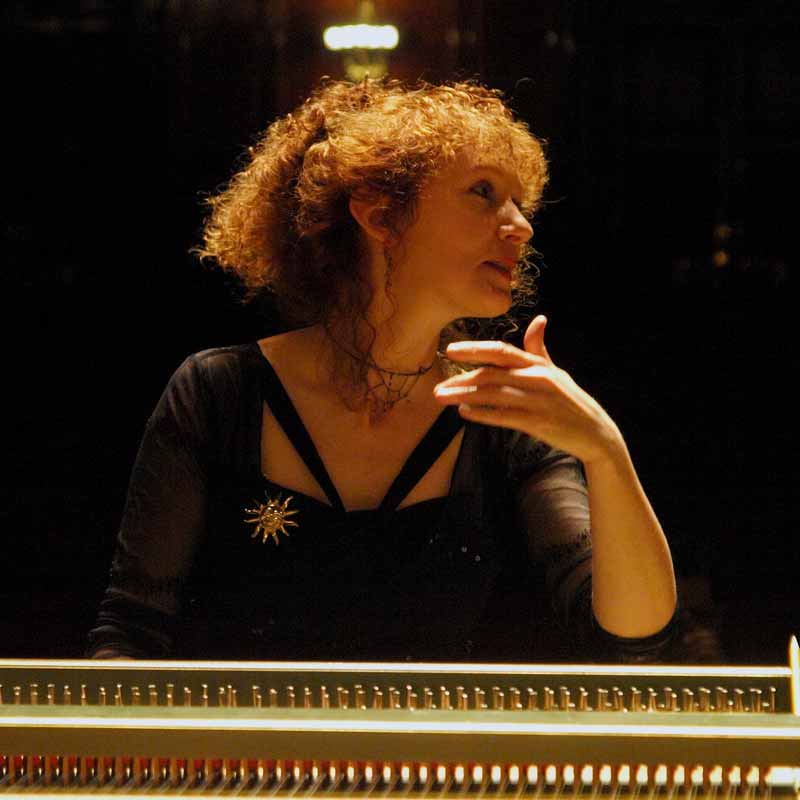
Founder Jeannette Sorrell will welcome soprano Sonya Headlam and violinist Francisco Fullana for music by Mozart — the Don Giovanni Overture, Exsultate, Jubilate, and the “Haffner” Symphony, No. 35 — nestled among two works by Joseph Bologne, Chevalier de Saint-Georges: an aria from L’Amant anonyme and a violin concerto.
The venues symbolize the stature the period instrumental ensemble has attained in mainstream concert music, as well as its determination to bring performances out into the community. I reached Jeannette Sorrell for a Zoom conversation last week to gather her thoughts about the past three decades, and to muse about what lies ahead for an organization that started in a sheep barn on Cleveland’s East Side but now enjoys access to some of the world’s premiere performance spaces and summer festivals. (The sheep barn is still among them.)
Having not so long ago wrapped up my own 30-year tenure at a local institution, I started our conversation by musing about how much things can change over that period of time. Sorrell joined right in. “30 years ago. I remember making handwritten lists of which musicians we had booked to play in the debut concert.” I noted that when I arrived at Trinity Cathedral in 1977, the office was using an answering service and a desktop copier that looked like a Mac Plus and if you were lucky, would return the original you fed into the slot in front. “And Ditto machines with their purple ink,” Sorrell added before moving on to more weighty matters.
“The most striking thing is that when I started the group 30 years ago, I thought OK, I’ll do this for a couple of years until it dies, and then I’ll find something else to do,” she said. “I mean truly, I never imagined that we would have such a strong local series, much less the international touring that we’ve done. And the fact that we would now have a budding satellite series in Chicago certainly never entered my imagination.”
Sorrell noted that the organization began with a modest level of support. “We started with a staff of one, and now we have about fifteen — six full-time and seven or eight part-time. For the debut concert, the box office manager was my sister, who was a student at the time. We made our debut in June, so she was done with her semester and kindly drove up to help. She’d never handled a box office before. I think it went all right — we survived.
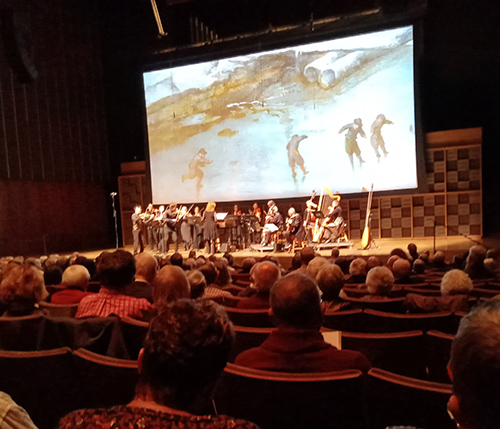
“I remember sitting on the floor with her in my apartment in Oberlin staring at this list of names. And we thought, all right, we’re going to walk up and down Fairmount Boulevard in Pepper Pike and knock on the doors of those lovely homes and ask if they’d take in a musician. That was the plan for a while, but we didn’t end up having to do that. Case gave us their dorms for that debut concert because it happened to be in the summer.
“That little story shows us that the number of local musicians living in Cleveland has grown quite a bit, and we’re now able to do certain types of programs almost entirely with musicians who live in Northeast Ohio — particularly the summertime Countryside programs that are more folk-oriented. In my opinion, the finest historically-informed folk players in the country mostly live right here in Northeast Ohio, and it’s wonderful having them in our family.”
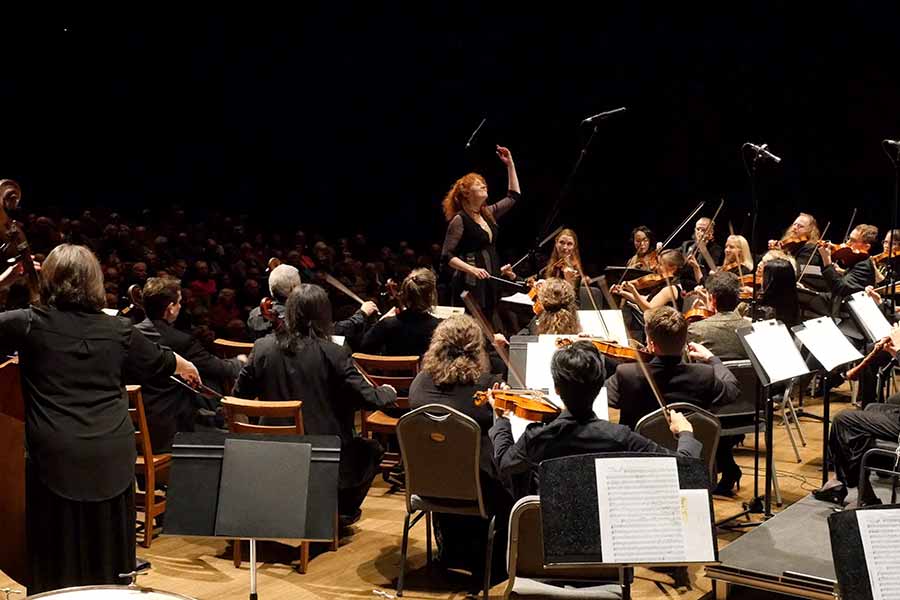
I asked Sorrell about important organizational landmarks in the ensemble’s history. She immediately mentioned the 2006 invitation from Aspen, the first national festival that wasn’t an early music festival. “It was our appearance at Aspen when Apollo’s Fire began to be recognized as an ensemble that could attract mainstream audiences.”
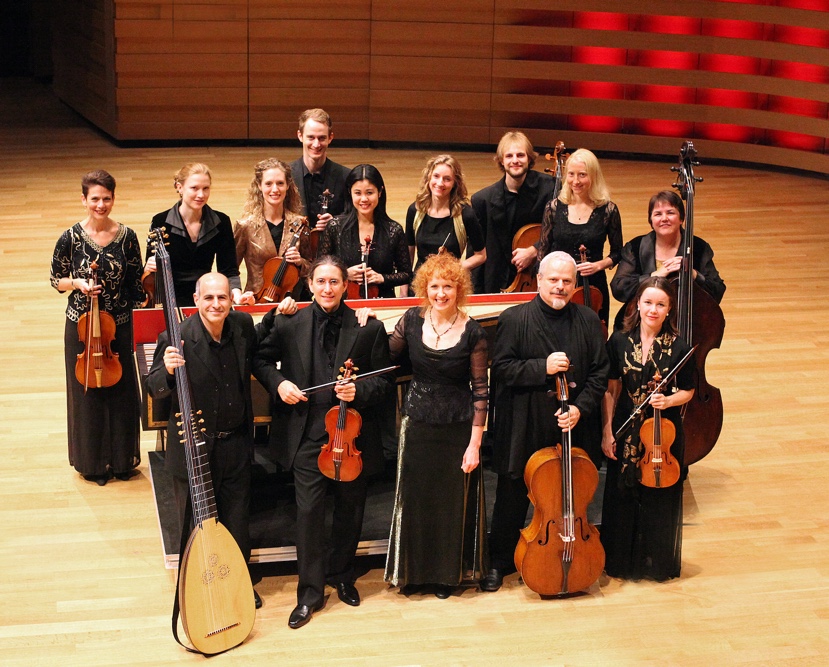
Board members and friends were important in carrying Apollo’s Fire past the “couple of years” mark that Sorrell first thought she might be committing herself to. It still wasn’t easy. “I was 26 when I started the group, and I didn’t know anyone in Cleveland.” She invited people for coffee, but one potential mentor discouraged her from conducting in general, and others thought that starting a Baroque orchestra in Cleveland in 1992 just wouldn’t work.
“I said, well, I’m going to try it anyway, and the typical response was ‘In that case, I’ll help you.’ The first year or so I was living on Ramen noodles and supporting myself with a part-time church job. I still love Ramen noodles. I eat them all the time.”
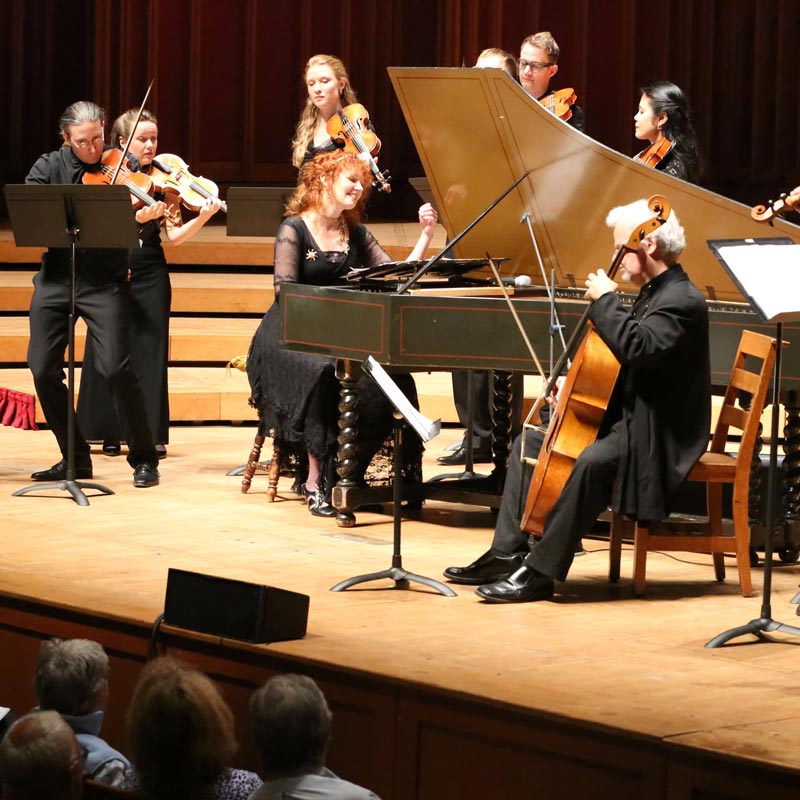
And during the pandemic? “The last two years have been very difficult, but Apollo’s Fire has come out much stronger in a few different ways. We have new subscribers who don’t live here, and more dedicated fans who live in other places,” Sorrel said. “And it’s been good musically. We’re one of the few ensembles that continued its full schedule, but under strict COVID protocols — a maximum of 13 players onstage, spaced six feet apart, and separated by partitions. It was a challenge performing with only two violins on a part. The usual minimum is three, but we’re now really good at doing that.”
With all of Apollo’s Fire’s successes as a touring orchestra, and with the establishment of a satellite concert series in Chicago, how committed is the ensemble to Cleveland?
“We’re deeply rooted in our home town, where the local audience has nurtured us, supported us, and given us confidence,” Sorrell said. “Our out-of-town musicians have developed really wonderful friendships with their host families. My next dream in Cleveland is to launch a community arts center at the University Circle United Methodist Church with after-school programs primarily for less privileged kids. There are lots of ideas.”
Is there more on Jeannette Sorrell’s bucket list? “Mainly a wishlist for programs, with high priority given to Beethoven’s Ninth, and Baroque opera and theatrical works. Northeast Ohio could be a national center for Baroque opera and chamber opera. The talent is here.”
Published on ClevelandClassical.com May 4, 2022.
Click here for a printable copy of this article


